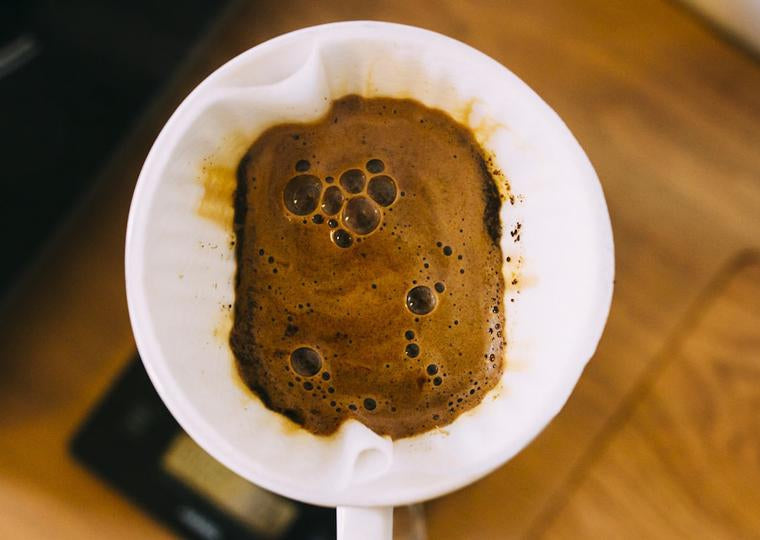At Market Lane, nearly one-third of the waste we produce in our shops and roastery is organic waste, and we’re proud that it’s handled in an environmentally responsible way.
The majority of our organic waste is made up of used coffee grounds, along with a very small amount of other food waste, and chaff (the papery skin from the coffee bean which comes off the bean in the roasting process).
We recycle our organic waste at our head office and in all of our shop locations, and in most cases we do this through a company called Natural Recovery Systems. This company was founded over two decades ago with the aim of efficiently processing organic waste. Their plant utilises a type of composting called ‘in-vessel’ composting, as opposed to the more common ‘wind-row’ composting (which is common for farming and domestic waste).
In-vessel composting is a very active method of composting. There are two main goals to this process: 1. to break down the organic matter into a fine humus, and 2. to pasteurise the resulting product and prevent the spread of seeds and weeds in the resulting compost. To break down the food waste, Natural Recovery Systems uses positive airflow through a mixture of food waste, sawdust and plant mulch. This positive airflow generates a lot of aerobic activity in the food waste, enabling micro-organisms to oxidise carbon to produce carbon dioxide.
The right mix of green waste mulch (from green council waste bins), food waste and sawdust is achieved when the moisture content is high enough for the microbial activity but low enough to allow airflow through the mixture. The mixture is kept in a sealed, concrete-lined 35m3 vessel – about 10 tonnes’ worth – and fed with oxygen for 7–10 days while the mixture breaks down. To have the compost properly pasteurised, it must be held at 55°C or above for 72 hours. At this temperature, all seeds and potential contaminants are eliminated. The resulting compost is 1/3 of the original volume and has lost about 50 per cent of its weight in moisture.
The final product, a nutrient-rich humus, is then sold to farms across Victoria as an organic compost that enriches the soil for food production. This compost is in high demand because of the guarantee of pasteurisation, and the high nutrient content.
We see responsible waste management and waste reduction as crucial in reducing our impact as a business on both the environment and our society. As well as recycling our organic waste, we minimise what ends up in landfill by recycling paper, plastic, soft plastic and glass in all our locations. We also collect and responsibly recycle our e-waste, and accept used coffee bags to be recycled by Terracycle.
Learn more about our sustainability efforts here.




